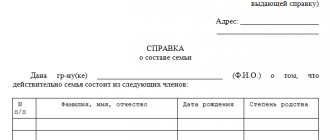4
Close people of the deceased may become owners of the inheritance by law or by will. In both the first and second cases, the circle of heirs is clearly defined. The legal heirs act in the order of priority established by the Civil Code of the Russian Federation, and the testator determines the successors under the will during his lifetime. One of the non-standard situations is the death of the applicant for real estate and savings. The key question is who will receive the benefits of the deceased if the successor died before entering into the inheritance?
Identification of a potential successor
The death of a person entails the opening of an inheritance. This means that heirs can receive or “purchase” the inheritance.
Claimants by law
In the absence of a will, the property is divided between:
- The first to inherit are the closest blood relatives and relatives (spouses, parents, children of the deceased, grandchildren by right of representation).
- Second in line are brothers and sisters (their children by right of representation), grandparents.
- Third in line are uncles, aunts and their children by right of representation.
Subsequent queues are more distant relatives who acquire valuables only in the absence of close contenders.
Separately, the 8th stage is highlighted - compulsory heirs. This:
- disabled citizens who were dependent on the deceased for at least 1 year before his death and who are relatives;
- not relatives who meet the specified conditions and lived with the testator for at least 1 year before the opening of the inheritance.
Their share of the inheritance is equal to the share of the applicants called up in order of priority.
Claimants under the will
A will is an official document that clearly defines the rights and obligations of legal successors.
The heir under a will can be an individual from among relatives, friends, acquaintances, organizations and even the state.
If there is a document, the obligatory heirs will receive at least ½ of the part allocated to them by law.
What is the right of representation?
In paragraph 2 of Art. 1142, 1143,1144 of the Civil Code of the Russian Federation there is the concept of heirs by right of representation. This is the right of the descendants of a deceased heir, belonging to one of the first 3 orders according to the law, to receive property that would have been due to him during his lifetime.
The validity of the right begins only if the successor died before the opening of the inheritance or simultaneously with the person for whom he could receive the benefits.
The representation applies only to legal heirs. They “stand in” for a deceased relative, representing his interests and acquiring his share of the property.
If an ancestor was disinherited, descendants cannot claim the property by right of representation.
Example. Citizen S. had 2 sons and a sister of retirement age, who lived with the three of them for more than 1 year. One of the sons had a son, and the second had a wife and 2 daughters. All persons have reached the age of majority. The sons died in a car accident. A year later their father died. By right of representation, the property was transferred to: the grandson - 1/3 and granddaughters 1/6 each by right of representation, and the sister 1/3 as the heir of the obligatory share.
In this example, the sons did not have time to accept the inheritance due to death, and the children inherited their shares instead.
What is hereditary transmission?
The transfer of the right to accept an inheritance instead of a deceased potential successor, who could have inherited property by law or will within 6 months from the date of death of the testator, but did not have time to do this due to death, is called “hereditary transmission”.
The right operates on the basis of Art. 1156 of the Civil Code of the Russian Federation under the totality of circumstances:
- An inheritance case has been opened according to law or will.
- During the 6-month period, to either contact a notary and write a corresponding application, or actually accept the valuables. The latter means that until the moment of death, the applicant did not live in the property transferred to him, did not pay bills for the maintenance of the house or apartment of the deceased, did not maintain its safety and proper appearance.
- The intentions of a person who died within 6 months of the need to accept benefits cannot be established. The person did not take actions that would allow him to reliably know whether he wanted to acquire property, give it up, or actually use it.
If at least one of the conditions is not satisfied, the transfer of the property of the deceased occurs on other grounds.
Under the acceptance of inheritance in accordance with Art. 1153 of the Civil Code of the Russian Federation should be understood:
- filing an application at the place of residence of the owner of material wealth or the location of objects of the inheritance mass;
- performing actions for actual acceptance.
If the heir accepted the property of the deceased in the indicated ways, but died before receiving a certificate of inheritance, his descendants cannot receive the property through hereditary transmission.
Example diagram of transmission operation:
Expert opinion
Stanislav Evseev
Lawyer. Experience 12 years. Specialization: civil, family, inheritance law.
In the example considered, the “transmitter” or the person who did not have time to accept the property is the son, and the son’s wife is the “transmissor,” that is, a contender for the left-behind values of S. according to the rule of transmission.
The essence of the transmission is the restoration of justice for the loved ones of the deceased heir. If he had lived, he would have received the property. Transmission is a natural continuation of the process of acquiring benefits after the death of the heir and allows relatives to decide whether to refuse or receive valuables.
What to do if the heir died before the testator
According to the Civil Code, there is a clear division of episodes in the event that the heir died before or after the testator. The opening of a case means the specific death of the testator. The hereditary mass is formed automatically. To do this, you do not need to take any separate actions.
Conditions for the transfer of property under Article 1156 of the Civil Code of the Russian Federation
We are talking about the transmission channel. Article 1156 of the Civil Code of the Russian Federation helps to claim the “released” share of the first heir. Moreover, such applicants can be both by law and by will. They are entitled to material goods on standard grounds. The most important principle remains the death of the primary heir after the death of the testator.
That is why this legal guarantee does not apply to situations in which the heir died before the testator himself. Here sub-appointment under a will becomes relevant, taking into account Art. 1121 and the right of representation for an heir by law (but not by will) based on Art. 1146. A death occurring at the same time as the testator or one that occurred earlier is counted.
Sub-designation is the designation of a substitute by the testator. Upon presentation, the testator's grandchildren, nephews and cousins receive the inheritance.
The successor died after the testator
This situation also concerns the transmission transition, since the main rule of the standard under discussion is the death of the original beneficiary after the opening of the inheritance. And it means the death of the initial recipient of a share from the inheritance mass.
The requirements for such heirs are the same as for direct acquirers. They are also forced to contact a notary’s office and comply with procedural regulations. Namely, present the necessary documents, write an application, pay the state fee for issuing certificates of inheritance rights (these norms are established with and without a will).
The heir does not have time to take possession
This still means transmission. In principle, there is no talk about entering into ownership rights during the life of the testator, because the inheritance is not considered open. Accordingly, all registration procedures begin only from the day of his death. Transmission takes place if the initially appointed heir did not have time to accept (enter) the inheritance and transfer (register) the property to himself.
Documented possession of property/rights/assets indicates that the property of the new owner will pass in connection with his death to his heirs on a general basis directly from himself, as an established testator. The transfer can be legal or under a notarial will.
The successors who come to replace them are forced to start the registration process from the very beginning, even if their predecessor has completed most of the steps necessary to enter into the inheritance. This is explained by procedural specifics. Each recipient expresses personal claims to the share assigned to him.
The death of the successor occurred within six months from the date of opening of the inheritance
In order to assume rights, the heir under the will or the person replacing him is given a six-month interval, the countdown of which begins from the day of the death of the will-maker. During this time, you must go through the application stage, as well as complete the remaining required procedures: property assessment, calculation of the duty as a percentage of the cost amount, payment and delivery of the receipt to the notary.
If the death of the heir occurred during this period (which contributed to the transfer of rights), then the individuals replacing him have a shorter period of time to complete all the necessary stages of registration. Sometimes, by a court decision, they have the right to request an extension of this period (more precisely, restoration of the missed period).
When transmission fails
Some nuances may prevent you from becoming a transmitter:
Situation 1. If the successor died before the testator opened the inheritance, then the descendants of the latter are subject to the right of representation.
Example. Citizen S. has a son L. and daughter A. The son dies, and 1 year later the father dies. L.'s two daughters receive their grandfather's property by right of representation for their deceased father. If the cost of the apartment is 1 million rubles, the daughter will get ½ - 500 thousand rubles, and the granddaughters will get ¼ each, that is, 250 thousand rubles. each.
Assuming that the father dies before his son, and the son, due to death, does not have time to enter into an inheritance, L.’s wife, daughters and parents will be able to acquire part of S.’s valuables within the framework of his share.
Situation 2. If the successor missed the deadline for acceptance and did not have time to restore inheritance rights through the courts, transmission is not expected. According to Art. 1155 of the Civil Code of the Russian Federation, only a claimant by law or will can file an application with the court.
If the heir died after 6 months from the opening of the inheritance case, but did not express an intention to acquire it, the period for other applicants is extended by 3 months beyond the established one. The descendants of the deceased are not transmitters.
Example. Citizen F. died in July 2021. His son died in February 2021 (7 months later). The son’s wife will not be able to accept the values by right of transmission, since until April 2019, representatives of subsequent orders according to the law will be able to claim F.’s material benefits: brothers and sisters, uncles and aunts, etc.
Situation 3. If the applicant did not visit the notary, but began to actually manage the property of the deceased. Such actions are legally equivalent to writing an application for acceptance of inheritance.
In this case, the legal successor of the heir will receive the property by inheritance. They will not have to enter into transmission order. However, you may have to prove your rights in court.
Situation 4. If the applicant writes a waiver of the benefits due, then his heirs will not be able to change anything and will be deprived of the opportunity to purchase real estate and savings.
To whom do the rights to property pass after the deceased heir?
Let's consider a situation where the heir died, without having time to assume his legal rights. It should also be noted that we are talking about inheritance by law, that is, there is no will.
So, since the heir by law is most likely your close relative on the 1st, 2nd or 3rd line, this means that after his death the bulk of the property that was due to this person passes to the heir’s relatives on the first, second, third line. Read more about the line of inheritance and who the obligatory heirs are here.
Attention! In order to determine who is the next owner of the inheritance, it is necessary to familiarize yourself with Articles 1156 and 1141 of the civil legislation. This article talks about 8 lines of kinship, and in them you must definitely find a second contender for the inheritance.
Now let's talk about the situation when a will takes place. This means that the testator clearly stated to which person and what specific share of the inheritance is due. In this case, if the heir dies, then his share may pass to his heirs by kinship or will, despite the fact that there is no will of the testator to do so.
In the event of his sudden death, the inheritance may go to the closest relative by law, and may also go to dependents.
Therefore, if the testator is not indifferent to the fate of his property, he must rewrite the will, indicating who will receive the property of the deceased heir.
Sometimes there are situations when the heir dies immediately after the opening of the inheritance. In this situation, there is no longer a testator, since he is deceased, because the inheritance was opened 6 months after his death. So what to do in this case?
Since the heir has already entered into his rights of inheritance, but has not yet managed to formalize the ownership right, this does not deprive him of the right to own, dispose of and use the property. And therefore, now his heirs by law or will will become the owners of the received property.
True, in this situation, future heirs will have to make a significant effort, because the registration will involve serious paperwork.
Find out what to do if the heir has not entered into the inheritance within 6 months.
Video about the existing line of heirs:
Inheritance upon death of legal successors: rules, terms
The consequences for successors of people who were unable to accept the inheritance will depend on the moment of death and the presence of a will.
To consider possible situations, let us assume that citizen A is the testator, B and B1 are his legal successors, C is the heir of citizen B.
Until the death of the testator
If citizen B dies before A's death or at the same time as him and therefore does not accept his property, the following happens:
- Applicants are called upon to inherit according to the law. If A wrote a will for citizen B, and the latter was unable to accept the property due to death, then the will does not apply to C.
- The legal successors of A by right of representation are the persons specified in paragraph 2 of Art. 1142, 1143,1144 of the Civil Code of the Russian Federation: grandchildren, nephews, cousins in order of priority upon death of children, brothers or sisters, nephews and nieces.
- The period for accepting values by right of presentation is 6 months from the date of death of citizen A.
After the death of the testator
If heir B dies within 6 months from the date of death of A, without having time to accept the property due to him, then:
- Citizen C can accept A's property as a transferee. The possibility of acquiring what was bequeathed is excluded if the testator has appointed an heir. However, if the basis for subassignment is refusal of succession, recognition as unworthy and other reasons, but not the death of the heir, the value will be accepted by the transmitter.
- Citizen C accepts benefits from A only if B dies.
- The acceptance period for C is at least 3 months from the date of B’s death.
- If citizen C refuses to accept material benefits and misses the established period, the property is transferred to the legal successor - B1.
The procedure for entering into inheritance under a will
As already emphasized above, the notary does not search for heirs, except in cases where the list of recipients of the inheritance is known to him.
If the notary is approached by people who lay claim to the property of the deceased, but it turns out that the legal heirs do not receive anything due to the fact that a will was left, the notary takes measures to inform the persons specified in the will, whose contacts could have been left by the testator himself (or communicated notary by other heirs).
The persons indicated in the posthumous order will have to appear at the notary's office and write a statement of readiness to accept the inheritance.
It is important to remember that the composition of the inheritance can include not only property, but also the debts of the testator. In order not to pay for them, the only way is to refuse the inheritance
The person specified in the will can take just such an action if he considers that the composition of the proposed inheritance leaves much to be desired.
An application for acceptance or refusal must be written within six months from the date of opening of the inheritance (death of the testator).
If the person indicated in the will is a minor (a person under 14 years of age), then his legal representatives write the application for him, but if the person is between the ages of 14 and 18, he writes it himself, but with the consent of his legal representatives.
According to Art. 1153 of the Civil Code of the Russian Federation, you can accept an inheritance not only through a notary, but also in fact. This means that a person who knows from an open will that the only heir is himself can do without a notary, beginning to own and use the property of the deceased as his own.
However, this method has one very significant flaw - without a certificate, which is issued by a notary based on the results of consideration of inheritance cases, it will be impossible to dispose of some property.
Own and use, please, but there will be a problem with the disposal of real estate and transport, since the ownership of them is registered with government bodies (Rosreestr and the State Traffic Safety Inspectorate), and the owner, according to records in the databases, is still listed as a deceased citizen.
If you have a certificate in hand, there will be no problems; the owner of it can be changed, but if you do not have such a document, the only way to legalize the status of ownership of property is to go to court to confirm the relevant facts.
At the same time, it will still be necessary to prove that the inheritance was actually accepted, and only then the court will issue a decision that will confirm the rights to the inherited property.
This decision will have the force of a notarial certificate and according to it the change of owner will be carried out by the State Traffic Safety Inspectorate and Rosreestr.
It should also be noted that a will can be not only open, when the notary knows about its contents, and other people may know, but also closed, the contents of which are known only to the drafter himself and no one else.
USEFUL INFORMATION: Claim for recognition of the right to use residential premises
The envelope with the closed will is kept by a notary, who opens it after the death of the testator.
The envelope can contain either a real will or just an empty sheet of paper - the testator can do as he wants, either actually register the circle of heirs, or simply confuse everyone with the presence of an empty envelope.
Algorithm of actions
The transmitter must contact one or different notaries. An inheritance case is opened for each property separately. In any case, the acceptance of the benefits acquired by the deceased is carried out in accordance with a certain algorithm of actions.
Step 1. Submitting an application
Separate applications are submitted for each type of inheritance:
- At the place of residence of the testator (A);
- At the place of residence of the transmitter (B).
If the place of residence is not reliably determined, it is necessary to contact the location of the real estate or the most valuable part of the movable property.
Sample application for inheritance through hereditary transmission
If one notary is involved in the affairs, different statements written according to the model are submitted to him. When acquiring property by right of representation, one application is submitted.
Step 2. Providing documents
List of required documents
| No. | Document function | Title of the document |
| 1 | Identity cards of legal successors | Passport, birth certificate for minors, identity cards and their translation for foreign citizens |
| 2 | Evidence of the death of the owners | Death certificates of testators |
| 3 | Data on the presence of family ties | Birth certificate, marriage certificate |
| 4 | To reliably determine the place of opening of the inheritance | certificate of residence |
| 5 | To determine the circle of legal successors | Certificate of family composition |
| 6 | Title documents for the deceased's valuables | Property purchase and sale agreement, certificate of ownership, registration certificate |
| 7 | Documents on the assessment of inherited property to determine the amount of state duty | Certificate from Rosreestr, BTI or assessment report from a commercial organization |
At this stage, you must pay the state fee and provide the notary with a receipt for payment.
Step 3. Obtaining a certificate of inheritance
Deadlines for issuing the document:
- 3 months remain before the acceptance of the inheritance by right of transmission from the date of death of the testator, the period will be extended to 3 months , after which a certificate is issued. It will be impossible to restore the deadline.
- If the inheritance occurs by right of representation, the document will be issued 6 months from the date of opening of the inheritance.
Certificates can be issued earlier if the circle of legal successors is reliably determined and all documents are collected by the notary. Subsequently, they are presented to Rosreestr and the State Traffic Safety Inspectorate for registration of ownership.
6.5. Acceptance of inheritance through hereditary transmission
Hereditary transmission is the transfer of the right to accept an inheritance to other persons when the heir by law or by will, called to inherit in connection with the opening of the inheritance, died after the opening of the inheritance, without having time to accept it within the prescribed period after the opening of the inheritance. In this case, the right to accept the inheritance due to the deceased heir passes to the heirs of the deceased heir to the extent and with the powers that belonged to the heir who was called to inherit and died after the opening of the inheritance (Article 1156 of the Civil Code of the Russian Federation).
The essence of hereditary transmission is that instead of the heir who died after the opening of the inheritance, without having time to accept it, his heirs (hereditary successors) are called to inherit the opened inheritance, to whom his right to accept the opened inheritance is transferred. The rules of hereditary transmission apply both in cases where the heir in the order of hereditary transmission is an heir by law, and in cases where such an heir is an heir under a will.
By way of hereditary transmission, the right to accept an inheritance passes from the deceased heir to his heirs by will, if all or part of the inherited property has been willed. If the property was not willed, then the right to accept the inheritance through hereditary transmission passes from the deceased heir to his heirs by law (clause 1 of Article 1156 of the Civil Code of the Russian Federation). At the same time, the right of the heir to accept part of the inheritance as a mandatory share (Article 1149 of the Civil Code of the Russian Federation) does not pass to his heirs by way of hereditary transmission.
Inheritance by way of hereditary transmission occurs only if there are reliable facts that the heir who died before the expiration of the established period for accepting the inheritance did not accept the inheritance after the testator, either by filing an application or in fact. If the heir died after the opening of the inheritance, but before his death he managed to accept the inheritance in any way permitted by law, then the inherited property due to him is included in his own inherited property (Clause 4 of Article 1152 of the Civil Code of the Russian Federation). In this case, inheritance by his heirs is carried out on a general basis.
When registering the right to accept an inheritance in the order of hereditary transmission, general rules are applied that determine the methods, terms of acceptance and refusal of an inheritance, and the possibility of refusing an inheritance in favor of other persons (Articles 1153, 1156, 1157 - 1159 of the Civil Code of the Russian Federation).
The rights of heirs and the conditions of inheritance are determined in relation to each individual case of hereditary succession.
The peculiarities of accepting an inheritance in the order of hereditary transmission are that the heir called to inherit has the right to simultaneously accept the inheritance that, due to death, the heir of the first testator called to inherit did not have time to accept within the prescribed period, and the inheritance that opened after the death of the first testator. heir-second testator (clause 1 of Article 1156 of the Civil Code of the Russian Federation). An heir called to inherit by way of hereditary transmission, as well as called to inherit an inheritance opened after the death of the heir himself, on a general basis may accept both inheritances or one of them or not accept both inheritances (Clause 2 of Article 1152 of the Civil Code of the Russian Federation ). Non-acceptance of an inheritance by way of hereditary transmission does not entail automatic non-acceptance of an inheritance on a general basis, and vice versa.
The deadlines for accepting an inheritance in the order of hereditary transmission and on a general basis do not coincide (clause 2 of Article 1156 of the Civil Code of the Russian Federation). For accepting an opened inheritance in the order of hereditary transmission (in connection with the death of the first testator), a special period has been established, which is calculated from the date of opening of the inheritance, but if the remaining part of the period established for accepting the inheritance is less than three months, then this part is increased to three months (Clause 2 of Article 1156 of the Civil Code of the Russian Federation). For the acceptance of an inheritance that belonged to a deceased heir, opened in connection with his death, carried out by his heirs on a general basis, the period established in Art. 1154 of the Civil Code of the Russian Federation. Heirs who missed the deadline established for accepting the inheritance in the order of hereditary transmission may be recognized as having accepted the inheritance in court on the basis of Art. 1155 of the Civil Code of the Russian Federation and clause 2 of Art. 1156 of the Civil Code of the Russian Federation.
Since the right to accept an inheritance in the manner of hereditary transmission is not included in the estate of the deceased heir, then if the heir called to inherit in the manner of hereditary transmission died before accepting this inheritance, the right to accept such an inheritance does not pass to the heirs of the latter ( Clause 1 of Article 1156 of the Civil Code of the Russian Federation).
If the heir who did not accept the inheritance died after the expiration of the period established for accepting the inheritance, and during his lifetime did not file an application to the court to restore the missed period for accepting the inheritance, inheritance by way of hereditary transmission does not arise, since restoration of the missed period for accepting the inheritance is possible only by statement of the heir himself (Article 1155 of the Civil Code of the Russian Federation). The right to accept an inheritance by way of hereditary transmission also does not arise if there is a will of the testator, in which he nominated another heir in case the heir dies before the opening of the inheritance, without having time to accept it (Clause 2 of Article 1121 of the Civil Code of the Russian Federation).
If the right to accept the inheritance, transferred through hereditary transmission, was not exercised by the heirs of the deceased heir within the prescribed period, it passes to other heirs in accordance with Art.
1161 of the Civil Code of the Russian Federation, which defines the rules for the increment of inherited shares. a unilateral volitional action of a person called to inherit, aimed at acquiring the inheritance due to him, carried out in the prescribed manner, within the time frame and in the ways determined by law. It is carried out by submitting the appropriate application of the heir at the place of opening of the inheritance to a notary or an official authorized in accordance with the law to issue certificates of the right to inheritance. a person who has the right to inherit the property of the deceased by will or by law. An heir is considered to be a person who is alive on the day of opening of the inheritance, as well as children conceived during the life of the testator and born alive after the opening of the inheritance. property owned by the testator on the day of opening of the inheritance, including property rights and obligations. Intangible benefits, non-property rights and obligations, as well as property rights and obligations inextricably linked with the personality of the testator (the right to alimony, the right to compensation for harm caused to the life or health of a citizen, etc.) are not included in the inheritance. Notarized in accordance with current legislation, a written order from the owner of the property on whose ownership the property (part of the property) should be transferred after his death.
Cost of inheritance
The costs of acquiring the property of a relative who died but did not have time to accept the inheritance will be:
- 0.3% of the value of the inheritance for spouses, parents, children, siblings, but not more than 100,000 rubles;
- 0.6% for other heirs, but not more than 1,000,000 rubles.
Example. Citizen B. bequeathed an apartment worth 1,000,000 rubles. son S. B died on 01/04/2018, and S - on 01/20/2018, without having time to accept the inheritance. The value of the son’s property in the form of an apartment is 4,000,000 rubles. His wife will accept her father-in-law’s valuables as a transmitter, paying a state fee of 6,000 rubles. (RUB 1,000,000 X 0.06%). When accepting a spouse's apartment as an inheritance, the wife is exempt from paying state duty, since she lived in it with her husband and in accordance with Art. 333.38 of the Tax Code of the Russian Federation falls into the category of persons entitled to benefits.
In the above example, the spouse is the transmitter, since less than 6 months passed between the death of the father-in-law and the husband. If the husband had died on or before the death of his father on July 5, 2018, the wife would have inherited only the husband's property.
In addition to the state fee, the heirs pay the notary for technical and legal services, the cost of which is established by regional notary chambers. You can find out more about the tariff on the website of the Federal Notary Chamber.









